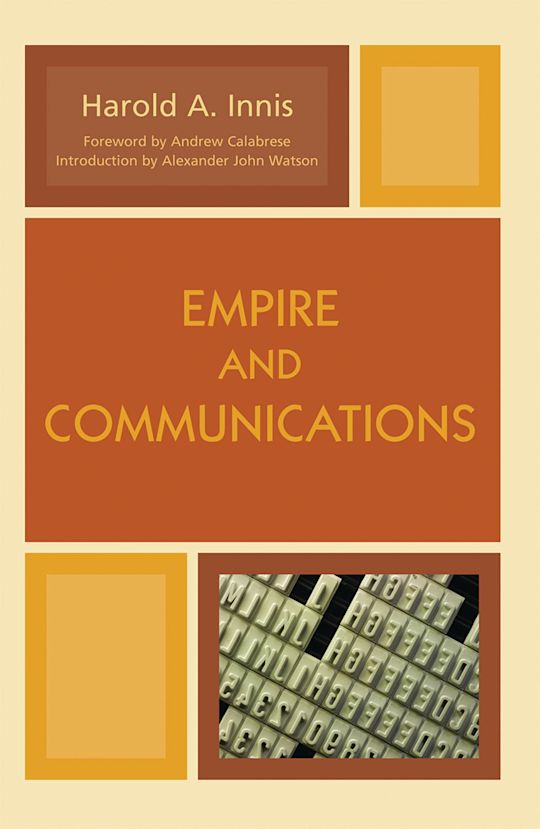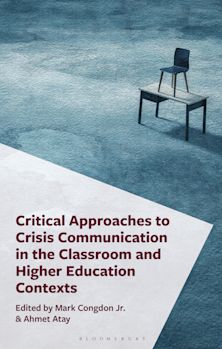- Home
- ACADEMIC
- Communication Studies
- Theory, Research, and Teaching Methods – Communication
- Empire and Communications
Empire and Communications
Empire and Communications
This product is usually dispatched within 3 days
- Delivery and returns info
-
Free US delivery on orders $35 or over
You must sign in to add this item to your wishlist. Please sign in or create an account
Description
It's been said that without Harold A. Innis there could have been no Marshall McLuhan. Empire and Communications is one of Innis's most important contributions to the debate about how media influenced the development of consciousness and societies. In this foundational work, he traces humanity's movement from the oral tradition of preliterate cultures to the electronic media of recent times. Along the way, he presents his own influential concepts of oral communication, time and space bias, and monopolies of knowledge. With a new introduction by Alexander John Watson, author of Marginal Man: The Dark Vision of Harold Innis, and a new foreword by series editor Andrew Calabrese, this previously hard-to-obtain book is now readily available again. All communication scholars should have this classic book on their shelves, and it also serves as a great supplementary text in communication and economics courses.
Table of Contents
Chapter 2 Introduction
Chapter 3 1 Introduction
Chapter 4 2 Egypt
Chapter 5 3 Babylonia
Chapter 6 4 The Oral Tradition and Greek Civilization
Chapter 7 5 The Written Tradition and the Roman Empire
Chapter 8 6 Parchment and Paper
Chapter 9 7 Paper and the Printing Press
Product details
| Published | Mar 06 2007 |
|---|---|
| Format | Paperback |
| Edition | 1st |
| Extent | 288 |
| ISBN | 9780742555082 |
| Imprint | Rowman & Littlefield Publishers |
| Dimensions | 9 x 6 inches |
| Series | Critical Media Studies: Institutions, Politics, and Culture |
| Publisher | Bloomsbury Publishing |
About the contributors
Reviews
-
I can think of no better inoculation against the rampant disease of present-mindedness in the contemporary world than a careful reading of [Innis's] classic, Empire and Communications. This book was the foundation on which he built his understanding of the contemporary world, in particular his view of the United States of America, its foreign policy, and its effects on other cultures. At the time of Innis's death in 1952, his perspective on the contemporary world seemed radical and far-fetched. When we read his work anew over a distance of more than fifty years, it seems fresh and, indeed, prophetic.
Alexander John Watson
-
Innis's writings ... prove understandable and applicable in a variety of modern-day contexts.
Technology and Culture
-
With the benefit of over 50 years of reflection, we can state without opposition that Harold Innis was an important figure in the development of communications studies, and that our students today would do well to read his book, if only to experience the joy of physically grasping and grappling with a difficult publication instead of reading the watered-down version available on Wikipedia.
Journal Of International Communication
-
This book teaches us to reflect on how the means and processes of communication have been embedded in imperial power. . . . In a career dedicated to explaining empire, Innis discovered communication and blazed an important trail. The time is ripe to reintroduce and welcome this rewarding book, especially to Innis's [U.S.] neighbors. We live in a moment in which the wages of empire weigh heavily on the world.
Andrew Calabrese, From The Foreword



































